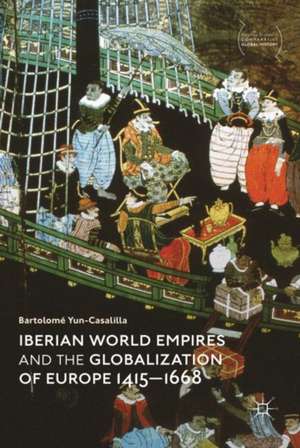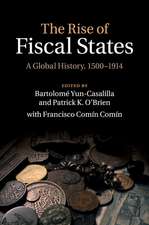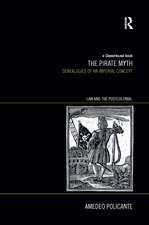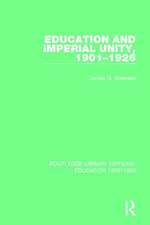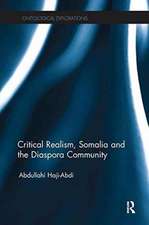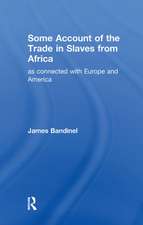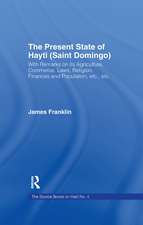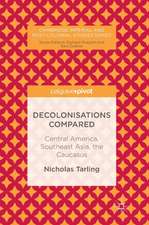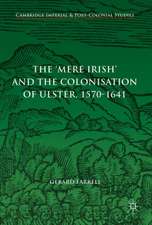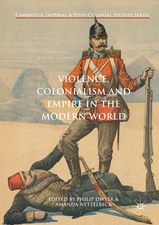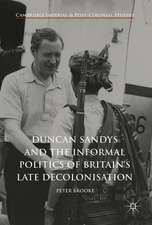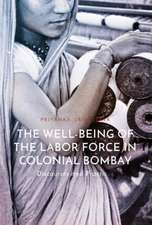Iberian World Empires and the Globalization of Europe 1415–1668: Palgrave Studies in Comparative Global History
Autor Bartolomé Yun-Casalillaen Limba Engleză Hardback – 22 mar 2019
This open access book analyses Iberian expansion by using knowledge accumulated in recent years to test some of the most important theories regarding Europe’s economic development. Adopting a comparative perspective, it considers the impact of early globalization on Iberian and Western European institutions, social development and political economies. In spite of globalization’s minor importance from the commercial perspective before 1750, this book finds its impact decisive for institutional development, political economies, and processes of state-building in Iberia and Europe. The book engages current historiographies and revindicates the need to take the concept of composite monarchies as a point of departure in order to understand the period’s economic and social developments, analysing the institutions and societies resulting from contact with Iberian peoples in America and Asia. The outcome is a study that nuances and contests an excessively-negative yet prevalent image of the Iberian societies, explores the difficult relationship between empires and globalization and opens paths for comparisons to other imperial formations.
Preț: 447.35 lei
Nou
Puncte Express: 671
Preț estimativ în valută:
85.63€ • 93.04$ • 71.97£
85.63€ • 93.04$ • 71.97£
Carte tipărită la comandă
Livrare economică 21 aprilie-05 mai
Preluare comenzi: 021 569.72.76
Specificații
ISBN-13: 9789811308321
ISBN-10: 9811308322
Pagini: 551
Ilustrații: XXVI, 520 p. 24 illus., 3 illus. in color.
Dimensiuni: 148 x 210 mm
Greutate: 1.03 kg
Ediția:1st ed. 2019
Editura: Springer Nature Singapore
Colecția Palgrave Macmillan
Seria Palgrave Studies in Comparative Global History
Locul publicării:Singapore, Singapore
ISBN-10: 9811308322
Pagini: 551
Ilustrații: XXVI, 520 p. 24 illus., 3 illus. in color.
Dimensiuni: 148 x 210 mm
Greutate: 1.03 kg
Ediția:1st ed. 2019
Editura: Springer Nature Singapore
Colecția Palgrave Macmillan
Seria Palgrave Studies in Comparative Global History
Locul publicării:Singapore, Singapore
Cuprins
Introduction.- Part I The Iberian Grounds of the Early Modern Globalization of Europe.- Global Context and the Rise of Europe. Iberia and the Atlantic.- Iberian Overseas Expansion and European trade networks.- Domestic Expansion in the Iberian Kingdoms.- Conclusions Part I.- Part II State Building and Institutions.- The Empires of a Composite Monarchy (1521-1598): Problem or Solution?.- The Christalization of a Political Economy, c. 1580-1630.- Conclusions Part II.- Part III Organizing and Paying for Global Empire, 1598-1668.- Global Forces and European Competition.- The Luso-Spanish Composite Global Empire, 1598-1640.- Ruptures, Resilient Empires and Small Divergences.- Conclusions Part III.- Epilogue.
Recenzii
“The description of the Habsburg defensive barrier against the Ottoman Empire, as well as a section comparing and contrasting the Ottoman and Iberian empires, are innovative as well as informative; most researchers limit their focus to the English and sometimes the French empires. The fact that this is an open-access book electronically makes it an even more valuable addition to the literature.” (Robin Grier, The Journal of Interdisciplinary History, Vol. 51 (1), 2020)
“The book provides an excellent graduate-level survey. … Graduate students and scholars rewriting their lecture courses will profit from perusing this ambitious volume.” (Stuart M. McManus, Hispanic American Historical Review, Vol. 100 (3), 2020)
“The book provides an excellent graduate-level survey. … Graduate students and scholars rewriting their lecture courses will profit from perusing this ambitious volume.” (Stuart M. McManus, Hispanic American Historical Review, Vol. 100 (3), 2020)
Notă biografică
Bartolomé Yun-Casalilla is Professor of Early Modern History, Pablo de Olavide University, Seville, Spain, and former professor at the European University Institute.
Textul de pe ultima copertă
This open access book analyses Iberian expansion by using knowledge accumulated in recent years to test some of the most important theories regarding Europe’s economic development. Adopting a comparative perspective, it considers the impact of early globalization on Iberian and Western European institutions, social development and political economies. In spite of globalization’s minor importance from the commercial perspective before 1750, this book finds its impact decisive for institutional development, political economies, and processes of state-building in Iberia and Europe. The book engages current historiographies and revindicates the need to take the concept of composite monarchies as a point of departure in order to understand the period’s economic and social developments, analysing the institutions and societies resulting from contact with Iberian peoples in America and Asia. The outcome is a study that nuances and contests an excessively-negative yet prevalent image of the Iberian societies, explores the difficult relationship between empires and globalization and opens paths for comparisons to other imperial formations.
Caracteristici
Offers a leading analysis of the expansion of the Iberian empire expansion and the impact of early globalization on the Peninsula Offers a comparative perspective on the impact of globalization on institutional development, the political economy, and processes of state-building in Europe Contests a prevalent, excessively-negative image of the Iberian empire, counterpoising the difficult relationship between empires and globalization and opening the debate for comparisons to other imperial formations
